New Jersey Senior Assistance Programs, Benefits, and Grants (2026)
 Senior Population: 2,324,457
Senior Population: 2,324,457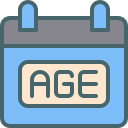 Median Age: 70.0
Median Age: 70.0 Veterans: 7.2%
Veterans: 7.2% Disability: 25.3%
Disability: 25.3%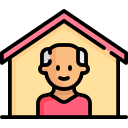 Renters: 24.9%
Renters: 24.9%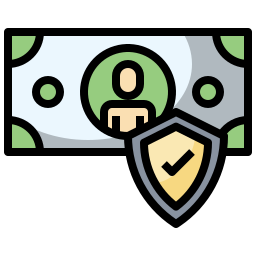 With Social Security Income: 71.8%
With Social Security Income: 71.8%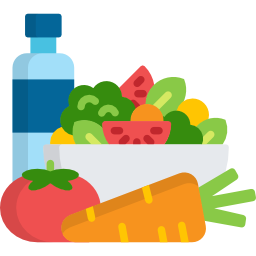 With Food Stamp/SNAP Benefits: 9.1%
With Food Stamp/SNAP Benefits: 9.1%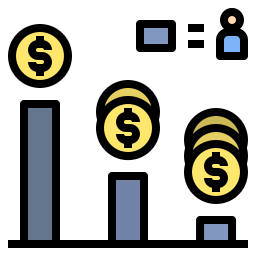 Below 100% of Poverty Level: 9.2%
Below 100% of Poverty Level: 9.2%Last updated:
This guide brings together the most important benefits and assistance programs for older adults in New Jersey. It covers money, taxes, health care and prescriptions, food, housing and utilities, transportation, legal help, and more—with direct links to official sources and realistic steps to apply.
If You Need Emergency Help
- Call 911 for any life‑threatening emergency.
- Mental health crisis or suicidal thoughts: Call or text 988, or use the chat at the 988 Suicide & Crisis Lifeline: Get help via 988.
- Need shelter, food today, or a place to start: Dial 211 or visit NJ 211 (available 24/7).
- Adult abuse, neglect, or exploitation (including self‑neglect): Call your county Adult Protective Services (APS) via the NJ hotline: Report or find APS contacts.
- Homelessness prevention or back rent help: See the NJ Department of Community Affairs’ Homelessness Prevention Program: NJ DCA – Homelessness Prevention Program.
Key Takeaways
- Use one application (NJSave) to apply for PAAD, Senior Gold, Lifeline Utility Credit, and Medicare Savings Programs: Apply with NJSave.
- For long-term services at home or in assisted living/nursing homes, look at MLTSS, JACC, and PACE:
- Energy help usually comes from LIHEAP (heating), USF (monthly credits), and sometimes PAGE/PowerOn and Comfort Partners:
- Property tax relief is a mix of Senior Freeze (PTR), ANCHOR, and the $250 senior/disabled deduction. Start here: NJ Property Tax Relief programs.
- Unsure where to begin? Call the statewide Aging & Disability Resource Connection (ADRC) at 1‑877‑222‑3737 or use the county directory: Find your County Office on Aging/ADRC.
By the numbers (New Jersey, ages 65+)
- Older adult population: 1.65 million (approx. 17.7% of residents)
- Disability among older adults: about 29%
Source: U.S. Census Bureau, American Community Survey (ACS) 2023 1‑year estimates. You can review the underlying tables here: ACS table S0101 (Age by Sex) – New Jersey.
How to Use This Guide
- Start with the program you need now (money for bills, medications, food, or housing).
- Use the “At a glance” tables to see what a program does and where to apply.
- Expect waitlists for some housing programs, especially Section 8 and SRAP.
- Verify current income limits and dates—these change every year. We link to official pages so you can double‑check.
Quick Benefits at a Glance
| Need | Program | What it does | Where to apply/learn more |
|---|---|---|---|
| Prescription costs | PAAD | Lowers Rx costs for eligible seniors; works with Medicare Part D | PAAD information & NJSave application |
| Prescription costs (higher limits) | Senior Gold | Discount Rx program for those slightly above PAAD limits | Senior Gold & NJSave |
| Medicare premiums/cost sharing | Medicare Savings Programs (QMB/SLMB/QI) | Pays Part B premium and sometimes other costs, income‑based | Apply via NJSave |
| Utility bills | LIHEAP + USF + Fresh Start | Heating help (LIHEAP), monthly utility credits (USF), debt forgiveness (Fresh Start) | LIHEAP, USF |
| Utility arrears | PAGE/PowerOn | Help with gas/electric past due balances (income‑based) | PAGE/PowerOn |
| Property taxes | Senior Freeze (PTR), ANCHOR, $250 deduction | Reimbursement of increases (PTR), tax credit (ANCHOR), annual $250 deduction | Property Tax Relief – NJ Treasury |
| Food | NJ SNAP | Monthly benefits on an EBT card for groceries | Apply for NJ SNAP |
| Meals | Congregate & Home‑Delivered Meals | Hot meals at centers or delivered to home; through county aging offices | Find your County Aging Office |
| Long‑term care | MLTSS (Medicaid) | In‑home, assisted living, or nursing home services for eligible seniors | MLTSS overview |
| In‑home support | JACC | State‑funded services to help you stay at home | JACC |
| All‑inclusive care | PACE | Team‑based medical and long‑term care for nursing‑home‑eligible seniors | PACE |
| Housing voucher | Section 8/HCV & SRAP | Rent subsidies; waitlists open periodically | Section 8 (DCA), SRAP |
| Free Medicare counseling | SHIP | One‑on‑one help choosing/using Medicare | NJ SHIP counseling |
Money, Taxes, and Everyday Bills
Property Tax Relief
- Senior Freeze (Property Tax Reimbursement/PTR) reimburses the increase in property taxes (or mobile home park site fees) on your primary residence once you qualify. Income limits and eligibility years change—check the official page for the current filing season and deadlines: Senior Freeze (PTR). Reality check: You must pay your current taxes on time each year to get reimbursed later; paperwork can be detailed.
- ANCHOR provides property tax relief to homeowners and renters. Amounts and eligibility vary by year and income; application windows open and close. See updates and apply here: ANCHOR Program.
- $250 Senior/Disabled Property Tax Deduction: If you are age 65+ or disabled and meet income/ownership criteria, ask your tax collector about this annual deduction. Learn more under “Deduction Programs” here: Property Tax Relief – Deductions.
Tip: Keep past tax bills and proofs of payment. If unsure which program fits you, call your municipal tax office and review the Treasury page above.
Cash and Income Supports
- Supplemental Security Income (SSI): Monthly cash benefit for very low‑income seniors (65+). Apply via Social Security: SSI overview and application.
Reality check: SSI counts most income and assets, but your home and one car are usually excluded. - Medicare Savings Programs (QMB/SLMB/QI): Pay your Medicare Part B premium (and sometimes other costs) if you have limited income. Apply through NJSave: Medicare Savings Programs via NJSave.
- Veterans benefits (pension and Aid & Attendance) can help with monthly income and long‑term care needs: VA Pension with Aid & Attendance/Housebound.
Utility, Phone, and Internet Help
- LIHEAP: Helps with heating costs and some emergency needs. Apply or find your local agency: NJ LIHEAP – DCA.
- Universal Service Fund (USF) with Fresh Start: Monthly credits to lower your gas/electric bills. Fresh Start can forgive past‑due balances if you keep up with current payments. Learn more and apply: USF & Fresh Start.
- PAGE/PowerOn: One‑time help for overdue gas/electric bills if you don’t qualify for USF or still need help: PAGE/PowerOn.
- Lifeline Utility Assistance (state): Annual credit (and related supports like HAAAD for hearing aids) for eligible seniors/disabled. Apply through NJSave: Lifeline Utility Assistance & HAAAD.
- Federal Lifeline (phone/internet): Monthly discount for voice or broadband if income‑eligible: Federal Lifeline program.
- Affordable Connectivity Program (ACP): Federal funding lapsed in 2024 and benefits ended for most households. Check the FCC page for any status changes or replacements: FCC ACP status.
- Energy Efficiency (can lower your bills long‑term):
- Weatherization Assistance Program (WAP): Free insulation, air sealing, and more for eligible households: NJ Weatherization.
- Comfort Partners: Free utility‑sponsored energy efficiency for low‑income households: Comfort Partners.
Reality check: Programs have different income rules and timeframes. If one door is closed (e.g., ACP), check the alternative options above and ask your local agency which combinations can work together.
Health Care, Medicare, and Long‑Term Services
Medicare Help
- Get unbiased, free help from NJ’s State Health Insurance Assistance Program (SHIP): Find SHIP counseling. They can review your Part D drug plan, Medigap, Medicare Advantage options, and check if PAAD/Senior Gold or Medicare Savings Programs can help.
- PAAD and Senior Gold reduce prescription costs for income‑eligible seniors. The simplest path is NJSave: Apply with NJSave.
Program income limits change annually; check the NJSave page for current numbers.
Medicaid (NJ FamilyCare) and Long‑Term Services
- NJ FamilyCare (Medicaid) for Aged, Blind, and Disabled: NJ FamilyCare home. If you need help with daily activities or nursing home‑level care, review these:
- MLTSS (Managed Long Term Services & Supports): Personal care, home modifications, equipment, assisted living, or nursing home coverage if you meet financial and clinical criteria: MLTSS overview.
- JACC (Jersey Assistance for Community Caregiving): State‑funded help to keep you at home—caregiver support, personal care, adult day, and more. Income/asset limits differ from Medicaid: JACC program.
- PACE (Program of All‑Inclusive Care for the Elderly): All your Medicare and Medicaid services managed by one team; includes transportation and adult day health. Must be nursing‑home‑eligible and live in a PACE service area: PACE in NJ.
- Statewide Respite Care Program: Short‑term relief for unpaid caregivers: Respite Care Program.
- Personal Preference Program (self‑directed care) under MLTSS: PPP information.
Reality check: Medicaid and MLTSS applications are detailed. You may need bank statements, proof of property, and more. For help, contact your County Aging/ADRC office or a SHIP counselor.
Adult Day Services and Healthy Aging
- Adult Day Health Services and Alzheimer’s Adult Day Services: Adult Day Services – NJ DoAS.
- HealthEASE (falls prevention, chronic disease management, bone health, and more): HealthEASE programs.
Low‑Cost and Free Clinics
- Federally Qualified Health Centers (FQHCs) provide primary and dental care on a sliding‑fee scale: Find an FQHC via NJPCA.
- Free and volunteer‑based clinics (limited areas):
Prescription Drugs and Medical Supplies
- PAAD and Senior Gold (apply via NJSave): NJSave application & details.
- Medicare Part D and Extra Help: If your income is limited, Extra Help can lower Part D costs: Social Security – Extra Help.
- Hearing Aid Assistance to the Aged and Disabled (HAAAD): Provides a benefit toward hearing aids for eligible seniors/disabled adults; part of Lifeline/Human Services supports: Lifeline & HAAAD.
- Assistive Technology (device loans, demonstrations, reuse): Assistive Technology Advocacy Center (ATAC).
- Vision services: NJ Commission for the Blind and Visually Impaired (CBVI).
Food and Nutrition
- NJ SNAP (Food Stamps): Apply online, by phone, or through your county board of social services: NJ SNAP. Tip: If your rent and medical costs are high, report them—this can increase your benefit.
- Senior Farmers’ Market Nutrition Program (SFMNP): Seasonal vouchers for fresh fruits and vegetables at farmers’ markets: Senior Nutrition Programs (NJ DOH).
- Commodity Supplemental Food Program (CSFP): Monthly box of staple foods for eligible older adults: CSFP in NJ.
- Meals in your community (Congregate and Home‑Delivered): Contact your County Office on Aging/ADRC to enroll: Find your county office.
- Food pantries and mobile distributions: Community FoodBank of New Jersey – Find Food or dial 211.
Housing, Rent, and Home Repairs
Rent Help and Housing Vouchers
- Section 8 Housing Choice Voucher (HCV): Run by DCA and many local housing authorities. Waitlists open periodically and often by lottery. Check here: Section 8 – NJ DCA.
- State Rental Assistance Program (SRAP): State-funded voucher program; application windows open at times, usually by lottery: SRAP – NJ DCA.
- Homelessness Prevention Program (HPP): Back rent and security deposit help through local agencies: HPP overview.
Reality check: Vouchers are in high demand. Apply when lists open, sign up for email alerts from DCA or your local housing authority, and keep documents ready.
Assisted Living and Group Homes
- If you need 24/7 support but want to avoid a nursing home, look at MLTSS for assisted living coverage or PACE for community‑based care:
- Your County ADRC can explain local assisted living options and eligibility steps: County Aging/ADRC directory.
Home Repairs, Weatherization, and Accessibility
- USDA Section 504 Home Repair (Rural Development): Loans up to 40,000(140,000 (1% interest, up to 20 years) and grants up to 10,000 for age 62+ to remove health/safety hazards. You must stay in the home at least 3 years after a grant: USDA 504 in NJ.
- Weatherization Assistance: Free energy‑saving repairs (insulation, sealing, furnace checks): NJ Weatherization.
- Comfort Partners: Utility‑funded free energy efficiency for low‑income customers: Comfort Partners.
- Nonprofit repair help:
- Rebuilding Together (critical home repairs): Find your local affiliate
- Habitat for Humanity (home builds and critical repairs; varies by county): Check your local Habitat affiliate.
Tip: Ask your County ADRC about local CDBG‑funded senior repair programs—many counties and cities offer small grants for safety modifications (grab bars, ramps).
Transportation
- NJ TRANSIT Reduced Fare (age 62+): Discounted fares on trains, buses, and light rail. A personal care assistant may ride free when requirements are met: Reduced Fare Program.
- Access Link (ADA Paratransit): Door‑to‑door service for riders whose disability prevents use of the fixed‑route system: Access Link.
- Medicaid Non‑Emergency Medical Transportation (if you have NJ FamilyCare): Trips to doctors/therapy/clinics managed by the state contractor. Learn more here: NJ Medicaid transportation.
- County senior transportation for medical visits and shopping: Contact your county ADRC, or use the statewide directory: Find a Ride NJ.
Dental, Vision, and Hearing
- Dental Lifeline Network (Donated Dental Services): Free comprehensive dental care for seniors who qualify (long wait in some areas): DDS – New Jersey.
- FQHC dental clinics offer sliding‑fee services statewide: Find an FQHC.
- Selected clinics (services vary by site):
- Vision: Commission for the Blind and Visually Impaired (CBVI).
- Hearing: HAAAD benefit via NJ Human Services.
Reality check: Expect waitlists for donated dental programs. Call early, gather any required medical or income documents, and ask your county ADRC for additional local options.
Legal Help, Consumer Protections, and Ombudsman
- Free civil legal aid for low‑income seniors: Legal Services of New Jersey (LSNJ).
- Long‑Term Care Ombudsman (problems in nursing homes or assisted living): NJ Office of the Long‑Term Care Ombudsman.
- Senior Medicare Patrol (SMP) – stop Medicare fraud and billing errors: Use the national locator to reach NJ SMP: Find SMP.
- Consumer complaints (contracts, scams): NJ Division of Consumer Affairs.
- Identity theft recovery plan: Federal Trade Commission – IdentityTheft.gov.
Work, Volunteering, and Digital Skills
- Senior Community Service Employment Program (SCSEP): Paid part‑time training for job seekers 55+: SCSEP – NJ Department of Labor.
- Free tech classes tailored to older adults:
- Senior Planet from AARP: Find free classes
- Your public library may offer loaner hotspots or 1:1 device help—ask locally.
Special Focus: LGBTQ+ Seniors, Veterans, Disabled Seniors, Tribal Communities, and Rural Areas
LGBTQ+ Older Adults
- Garden State Equality offers programs and advocacy; they can direct you to affirming services: Garden State Equality.
- SAGE National LGBT Elder Hotline (peer support, resources): 877‑360‑5428, 4 p.m.–midnight ET daily; SAGE Elder Hotline.
- Tip: Ask your county ADRC or SHIP for LGBTQ+‑friendly providers; many have lists upon request.
Veterans
- NJ Department of Military and Veterans Affairs (DMAVA): Benefits, county VSOs, housing assistance, and transport to VA care: DMAVA – Veterans Services.
- VA Aid & Attendance (helps with daily care costs): Learn and apply.
- SSVF (Supportive Services for Veteran Families): Rent, utilities, and rapid rehousing for eligible veterans: Find SSVF providers.
- Free rides to VA medical appointments may be available through DAV: DAV Transportation.
Seniors with Disabilities
- Division of Disability Services (DDS): Helps connect you to programs, equipment, and personal assistance services (including under age 70 PASP): NJ DDS.
- MLTSS, JACC, PPP, and PACE can be tailored if you have a disability that affects daily living (see links above).
- Assistive tech loans and device reuse: ATAC program.
- Paratransit (Access Link) and county transportation can provide door‑to‑door rides (see Transportation section).
American Indian/Alaska Native Elders
- Some benefits run through federal or tribal programs. If you are enrolled in a tribe, contact your tribal office or the Administration for Community Living (ACL) Title VI network to see if services are available to you: ACL Title VI programs – find grantees.
- New Jersey has state‑recognized tribes and Native communities. For health and social services, also use county ADRC programs and state resources listed in this guide. If you receive Indian Health Service (IHS) or Purchased/Referred Care elsewhere, ask about coordination with your NJ providers: Indian Health Service – find facilities.
Reality check: NJ does not have IHS hospitals; most Native elders in NJ use state and county services plus any tribal benefits they hold through enrollment.
Rural Seniors and Families
- If you live in parts of South or Northwest Jersey with limited transit:
- Use county senior transportation and Access Link for medical trips.
- Ask your ADRC about meal delivery and mobile food pantries.
- For home repairs, check USDA 504 and Weatherization first (links above).
- Telehealth can reduce travel—ask your clinic if your appointment can be done by phone or video.
Comparison Tables
1) Health and Long‑Term Care Programs (who they help and how)
| Program | Best for | What it covers | How to start |
|---|---|---|---|
| SHIP | Anyone with Medicare | Free counseling, plan comparisons, billing help | Find SHIP help |
| PAAD / Senior Gold | Income‑eligible older adults | Lower prescription costs | Apply with NJSave |
| Medicare Savings Programs | Low‑income Medicare beneficiaries | Pays Part B premium; sometimes more | Apply with NJSave |
| MLTSS (Medicaid) | Seniors who need help with daily activities or nursing home level care | In‑home supports, assisted living, nursing home | MLTSS overview |
| JACC | Want to remain at home but not eligible for Medicaid | Personal care, respite, adult day, more | JACC details |
| PACE | Nursing‑home‑eligible seniors in a PACE area | All‑inclusive medical and long‑term care | PACE info |
2) Utility and Energy Help
| Program | Type of help | Notes | Where to apply |
|---|---|---|---|
| LIHEAP | Heating/cooling help; emergency aid | Annual enrollment; call early each season | LIHEAP – DCA |
| USF | Monthly gas/electric credits | May pair with Fresh Start arrears forgiveness | USF – BPU |
| PAGE/PowerOn | Past due gas/electric help | For those not eligible for USF or still behind | PAGE/PowerOn |
| Lifeline Utility Credit & HAAAD | Annual credit; hearing aid help | Apply via NJSave | Lifeline & HAAAD |
| Weatherization | Free home efficiency repairs | Reduces bills long‑term | Weatherization |
| Comfort Partners | Utility efficiency program | Free for eligible customers | Comfort Partners |
3) Housing and Property Tax Relief
| Program | Who it’s for | Benefit | Learn more |
|---|---|---|---|
| Senior Freeze (PTR) | Homeowners meeting age, income, and residency rules | Reimburses yearly increases in property taxes | PTR info |
| ANCHOR | Homeowners and renters, income‑based | Property tax credit or direct payment | ANCHOR program |
| $250 Senior/Disabled Deduction | 65+ or disabled homeowner meeting income rules | Annual $250 deduction on property tax bill | Deduction programs |
| Veterans deductions/exemptions | Eligible veterans/survivors | Property tax deduction or exemption | Veterans property tax relief |
| Section 8 (HCV) | Low‑income renters | Pay affordable share; voucher pays rest | HCV – NJ DCA |
| SRAP | Low‑income renters (state‑funded) | Rental assistance; subject to lotteries | SRAP – NJ DCA |
4) Food Programs
| Program | What you get | How to access |
|---|---|---|
| NJ SNAP | Monthly EBT benefits to buy groceries | Apply online |
| SFMNP | Seasonal farmers’ market vouchers | Senior Nutrition – NJ DOH |
| CSFP | Monthly box of staple foods | CSFP details |
| Congregate & Home‑Delivered Meals | Hot meals at senior sites or delivered | Contact your County Office on Aging |
| Food pantries | Emergency groceries | Find food near you – CFBNJ or call 211 |
5) Essential Hotlines and Contacts
| Need | Contact |
|---|---|
| Aging & Disability Resource Connection (ADRC) | 1‑877‑222‑3737 or Find your county office |
| NJ SHIP (Medicare counseling) | Local SHIP finder |
| NJ 211 (basic needs, shelters) | Dial 211 or visit NJ 211 |
| APS – Elder abuse/neglect | Report and county contacts |
| NJ Transit Reduced Fare & Access Link | Reduced Fare, Access Link |
| LIHEAP/USF | LIHEAP, USF |
| Legal Services of NJ | LSNJ statewide help |
| Long‑Term Care Ombudsman | File a complaint/learn more |
| Mental health crisis | 988 (call/text/chat) – 988 Lifeline |
Resources by Region (How to Find Local Help Fast)
New Jersey runs most aging and disability programs through county Aging & Disability Resource Connections (ADRCs). Each county can enroll you in meals, transportation, caregiver support, and more.
- Use the official county directory: Find your County Office on Aging/ADRC.
- North Jersey examples: Bergen, Essex, Hudson, Morris, Passaic, Sussex, Warren
- Central Jersey examples: Hunterdon, Mercer, Middlesex, Monmouth, Somerset, Union
- South Jersey examples: Atlantic, Burlington, Camden, Cape May, Cumberland, Gloucester, Ocean, Salem
Tip: When you call, ask for an “Options Counseling” or “ADRC intake” appointment. Have your Medicare/Medicaid cards, proof of income, and a list of medications handy.
Reality Checks, Tips, and Warnings
- Benefits change every year. Always confirm current income limits and deadlines on the linked official pages.
- Keep paperwork. Save letters, tax bills, leases, and utility bills. They help with applications and appeals.
- Watch for scams. No one from Medicare or Social Security will call to demand payment or gift cards. If unsure, hang up and call the official number back (from your card or a government website).
- Housing waits are long. Apply widely (Section 8, SRAP, local housing authorities) and check back for lottery openings.
- Don’t leave money on the table. NJSave can enroll you in multiple programs at once—do that before paying high prescription costs or Medicare premiums out of pocket.
Frequently Asked Questions (FAQs)
- How do I apply for multiple senior programs at once?
Use NJSave. It screens and routes your application for PAAD, Senior Gold, Lifeline Utility Credit, and Medicare Savings Programs: Start NJSave. - My Medicare premiums are too high. Can New Jersey help?
Yes. Medicare Savings Programs can pay your Part B premium (and sometimes more) if your income is within limits. Apply through NJSave: Medicare Savings via NJSave. SHIP counselors can help you apply: Find SHIP. - What is the difference between PAAD and Senior Gold?
Both lower prescription costs. PAAD is for lower incomes; Senior Gold serves those with slightly higher incomes. Limits change every year—check the NJSave page: PAAD/Senior Gold via NJSave. - I need help staying at home. Where do I start?
Call your County ADRC (1‑877‑222‑3737) and ask about JACC (state‑funded), PACE (in certain areas), and MLTSS (Medicaid). See: JACC, PACE, MLTSS. - Can I get help with back rent or a security deposit?
Possibly. Check the DCA Homelessness Prevention Program and local nonprofits funded by the state: HPP – NJ DCA. Veterans should also check SSVF: Find SSVF providers. - What property tax help is available to seniors?
Senior Freeze (PTR), ANCHOR, and the $250 senior/disabled deduction. Review eligibility and applications here: NJ Property Tax Relief. - Is there still help for internet costs?
Federal ACP funding ended in 2024 for most households. Check the FCC page for updates: FCC ACP. You may still qualify for Federal Lifeline (phone/internet discount): Lifeline program. Ask your library about free Wi‑Fi, device lending, or classes. - Who helps with Medicare choices, billing issues, or suspected fraud?
- Medicare choices and billing: NJ SHIP
- Medicare fraud and scams: Senior Medicare Patrol
- Where can I get low‑cost dental care?
Start with FQHCs and Dental Lifeline Network:
- Find an FQHC
- Donated Dental Services (DDS) – NJ
Waitlists can be long; ask your county ADRC for local clinics.
- I don’t drive. How do I get to medical appointments?
- Access Link (if you can’t use the fixed‑route system): Apply for Access Link
- Medicaid NEMT (if you have NJ FamilyCare): NJ Medicaid transportation
- County senior transportation: Find your county ADRC
Sources and Official Program Links
- Aging & Disability Services: NJ Division of Aging Services (DoAS)
- County Offices on Aging/ADRC: Directory
- NJ FamilyCare (Medicaid): NJ FamilyCare
- MLTSS/JACC/PACE/SHIP: MLTSS, JACC, PACE, SHIP
- NJSave (PAAD, Senior Gold, Lifeline, MSPs): Apply
- SNAP/CSFP/Senior Nutrition: NJ SNAP, CSFP, Senior Nutrition
- Utilities and Energy: LIHEAP, USF, PAGE/PowerOn, Weatherization, Comfort Partners, Federal Lifeline, FCC ACP status
- Housing: Section 8 HCV – DCA, SRAP, Homelessness Prevention Program
- Property Taxes: PTR, ANCHOR, Deductions & Veteran relief
- Transportation: Reduced Fare, Access Link, Medicaid NEMT, Find a Ride NJ
- Clinics and Dental: NJPCA FQHCs, Dental Lifeline NJ
- Legal and Consumer: LSNJ, Long‑Term Care Ombudsman, Consumer Affairs
- Veterans: DMAVA, VA Aid & Attendance, SSVF locator, DAV Transportation
- LGBTQ+: Garden State Equality, SAGE Elder Hotline
- Data: ACS 2023 – NJ Age Profile
Disclaimer
Program rules, funding levels, eligibility limits, and application windows change frequently. Always verify details on the official program websites linked in this guide or by calling the relevant agency. This guide is for general information and is not legal, tax, or benefits advice.
About This Guide
by the GrantsForSeniors.org Editorial Team
The GrantsForSeniors.org editorial team has been building benefit and assistance resources for seniors nationwide since 2020. We research programs across all 50 states by reviewing government websites, checking agency updates, and gathering information from available sources.
Our Commitment to You:
- Experience & Expertise: The information in this guide is compiled and reviewed by a team with experience in senior services and financial aid programs. We are committed to sharing our knowledge to help you find the support you need.
- Authority & Trust: We rely on verified sources, including government agencies, non-profit organizations, and official program websites, to ensure the accuracy of our content. Our goal is to be a trusted authority you can rely on for credible information.
- Clarity & Accessibility: We understand that seeking financial assistance can be challenging. This guide is designed to be clear and easy to understand, breaking down complex topics into actionable steps.
While we work hard to provide the most accurate information available, please note that program details and eligibility requirements can change. We recommend always checking with the official program source or agency website for the most current information, as we are not official agencies but rather compile available information.
- Last Updated: December 2025
- Sources Verified: December 2025
- Next Review: February 2026
If you find outdated information, discover new resources, or have questions, please contact us at info@grantsforseniors.org. We’re here to help seniors find resources that can make a real difference in their daily lives.


 Data is taken from 2024 (latest): ACS 1-Year Estimates Subject Tables.
Data is taken from 2024 (latest): ACS 1-Year Estimates Subject Tables.

